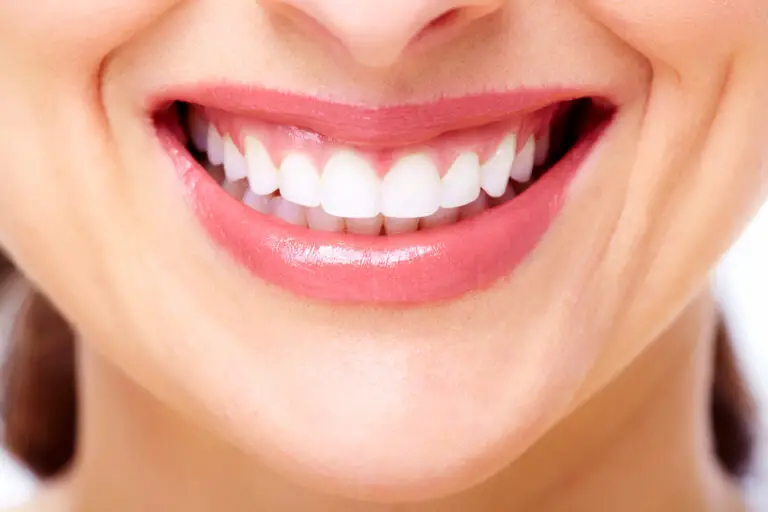Most of us are aware that good oral hygiene is important for our overall health and well-being. However, life often gets busy, and it’s easy to let our dental care slide from time to time. While an occasional missed brushing or flossing isn’t a major issue, prolonged neglect of your teeth can lead to serious dental problems.
The dangers of neglecting your teeth
Tooth decay
One of the most common consequences of poor oral hygiene is tooth decay. When you eat or drink foods containing sugars and starches, the bacteria in your mouth produce acids that attack your tooth enamel. Every time you eat or drink something with sugar in it, the acid attacks your teeth for 20 minutes or longer.
Over time, this acid can break down the enamel and cause cavities (holes in the teeth). The longer food debris and plaque (a sticky film of bacteria) remain on your teeth, the more damage is caused. Small cavities may not cause any symptoms at first. However, as they grow larger, they can lead to toothaches, tooth sensitivity, and even tooth loss.
Gum disease
Neglected oral hygiene also allows plaque to build up along and under your gumline. This can lead to inflammation and infections known as gingivitis and periodontitis. The symptoms include red, swollen, tender gums that bleed easily when you brush or floss.
As gum disease worsens over time, your gums recede and expose more of the tooth roots. Pockets form between teeth and gums, making it easier for more bacteria to accumulate. Eventually, the supporting tissues and bone can be destroyed, leading to tooth loss.
Bad breath
Bad breath (halitosis) is most often the result of poor oral hygiene that allows foul-smelling bacteria to thrive in the mouth. Brushing and flossing removes decaying food particles and plaque that cause odors. But when you neglect your teeth, smelly compounds like hydrogen sulfide and methyl mercaptan gas can build up and lead to chronic bad breath.
Tooth abscess
A neglected cavity may allow bacteria to infect the tooth’s inner pulp tissue. This can lead to a painful tooth abscess (pocket of pus). Abscesses cause throbbing pain, tooth sensitivity, bad tastes in your mouth, and swollen lymph nodes under your jaw. The infection can also spread to other teeth and surrounding tissues. Prompt treatment is required to drain the abscess and prevent more severe complications.
Additional problems
Other potential problems associated with poor dental care include:
- Toothaches
- Chewing difficulties
- Crooked teeth or changes to your bite
- Jaw pain (TMJ/TMD disorders)
- Oral thrush or other fungal/bacterial infections
- Oral cancer risk
- Staining and discoloration
- Tooth loss
Clearly, neglecting your oral health can spiral out of control, leading to expensive and complex dental issues. But the good news is that in many cases, the damage can be halted or reversed if caught early enough.
Signs you may be neglecting your teeth

It’s easy to overlook the warning signs that you’re overdue for a dental exam and need to improve your oral hygiene regimen. Here are some common symptoms that your teeth are being neglected:
- Tooth pain or sensitivity
- Bleeding when brushing or flossing
- Red, swollen, or tender gums
- Receding gums
- Persistent bad breath
- White spots on teeth
- Yellow, brown or black stains
- Chipped, cracked, or worn teeth
- Loose teeth
- Changes in tooth alignment
- Holes or pits in your teeth
- Food getting stuck easily in certain areas
If you notice any of these issues, call your dentist right away. Don’t wait for your normally scheduled cleaning. Getting evaluated and treated promptly can help prevent further damage.
Importance of dental checkups and cleanings
One of the main reasons teeth get neglected is that people skip their routine dental visits. According to the American Dental Association (ADA), adults should see the dentist at least once a year for an exam and professional cleaning. For those at higher risk of oral health problems, more frequent visits may be recommended.
Professional cleanings
Daily brushing and flossing isn’t enough to fully remove plaque and tartar below the gum line and in other difficult to reach spots. A professional dental cleaning scrapes away these disease-causing deposits. This helps prevent cavities and gum disease.
Most dental cleanings involve:
- Plaque and tartar removal above and below the gum line
- Polishing the teeth to remove new stains
- Fluoride treatment to strengthen enamel
Many dental visits also include a professional topical fluoride application to help harden your tooth enamel and make it more decay resistant.
Dental examinations
In addition to a dental cleaning, your dentist will perform a thorough examination to look for any problems. They will check your teeth, gums, tongue, palate, and other oral tissues for signs of:
- Decay
- Gum disease
- Oral cancer
- Problems with fillings, crowns, bridges, dentures, etc.
- Grinding, clenching issues
- TMJ disorders
- Bad breath
The dentist will also evaluate changes since your last visit. X-rays may be taken to detect issues between teeth or below the gum line. Early detection of any problems at your dental checkups can prevent more extensive treatment later on.
Regular dental visits prevent problems
Research indicates people who maintain regular dental care have better oral health. For example, they have:
- Less plaque buildup
- Lower incidence of gingivitis
- Reduced tooth decay and cavities
- Less need for complex treatments
Conversely, the longer you go between professional cleanings, the poorer your oral health is likely to become. One study found the incidence of oral disease doubles after just 3 to 4 years without dental care.
Professional guidance
Your dentist can also evaluate if you’re properly caring for your teeth at home. They may offer tips and advice on modifying your diet, brushing, flossing or using other aids like mouthwash. Custom trays with prescription strength fluoride gels may be provided for high-risk patients. More frequent recare visits could be recommended.
By continually monitoring your oral health and giving you preventive treatments, your dentist helps halt damage before it turns into complex problems. This approach saves you money and discomfort in the long run.
Good daily oral hygiene

While periodic dental visits are crucial, your at-home habits also play a major role in preventing tooth and gum neglect. Be sure you maintain a proper daily oral hygiene regimen that includes:
Brushing
- Brush teeth twice a day (morning and night) for at least 2 minutes each time
- Use a soft-bristled toothbrush with fluoride toothpaste
- Hold brush at a 45-degree angle and sweep in short strokes
- Brush all inner, outer, and chewing surfaces of teeth
- Focus on areas where cavities and decay are common like back molars
Flossing
- Floss teeth once a day, preferably at night
- Break off a new 18-inch piece of floss for each use
- Gently curve floss around the base of each tooth, scraping under the gumline
- Floss carefully between tight teeth to remove plaque
Other tips
- Rinse with an antiseptic mouthwash daily to kill germs
- Clean between teeth with interdental picks/brushes if space allows
- Replace your toothbrush every 3-4 months or sooner if bristles become frayed
- Schedule cleanings and exams every 6 months (or as dentist recommends)
Following these simple guidelines will go a long way towards preventing neglected teeth and gums. Be sure to ask your dentist if you need any changes to your home care routine.
Nutrition for healthy teeth
Your diet impacts the health of your teeth dramatically. Follow these nutritional guidelines to help keep your teeth strong and resistant to problems:
Limit sugary foods
- Reduce frequency of snacking/sipping on carbs or sugars
- Avoid sticky candies and dried fruits that cling to teeth
- Save sweets for mealtimes when saliva production is increased
Drink fluoridated water
- Fluoride makes enamel more resistant to decay
- Most tap water contains optimal fluoride, or use bottled water labeled “fluoride added”
Eat tooth-strengthening foods
- Dairy provides calcium and vitamin D for stronger enamel
- Crunchy fruits and vegetables help clean teeth
- Nuts, seeds, beef, poultry, eggs, and beans supply phosphorus
- Leafy greens, oranges, strawberries offer vitamin C
Avoid excessive acidity
- Minimize acidic foods like citrus fruits, juices, and vinegar
- Don’t brush right after consuming acids, as enamel is temporarily softened
Drink with meals
- Drink water alongside meals to neutralize acids and rinse food particles
- Finish with baking soda water to balance pH
- Avoid sugary or acidic drinks like juice, soda and sports drinks
Chew xylitol gum
- Sugarless gum with xylitol actively reduces and starves plaque bacteria
- Chew for 5-10 minutes after meals and snacks
Drink less alcohol
- Alcohol causes dry mouth, allowing bacteria to thrive
- Red wine, white wine, and beer are all quite acidic
With the right diet and oral care habits, your risk of neglected teeth will be greatly diminished. Be sure to discuss your diet with your dentist for personalized advice.
Professional treatments for neglected teeth

If you’ve been neglecting your oral health for some time, your dentist may recommend certain treatments to get your teeth and gums back in shape. Early intervention can often restore them to full health.
Fillings
Small areas of decay can often be repaired with tooth-colored fillings. Your dentist will clean out the damaged section and fill the hole with a resin composite material matched to your natural tooth shade.
Root planing
If gum disease is detected, the dentist may perform root planing to debride and smooth roughened root surfaces. Anesthetic is applied before the roots are scaled and cleaned below the gum line.
Crowns
When a tooth is severely damaged or decayed, a dental crown may be needed. The visible portion of the tooth is capped with a custom-shaped cover made of ceramic, metal, or porcelain fused to metal.
Extractions
In cases of advanced gum disease, badly broken teeth, or severe tooth damage, extraction may be necessary. The dentist will numb the area before removing the entire tooth and roots.
Dental implants
An artificial tooth root and crown implant can replace lost teeth. A small titanium screw fuses to the jawbone beneath the gums, followed by placement of an abutment and life-like dental crown.
Deep cleanings
If neglected teeth have led to gum recession and pockets between the teeth and gums, you may need scaling and root planing below the gum line. This gets rid of built-up bacteria and diseased tissue.
Gum grafts
A gum graft can help restore areas of receding gums. Soft tissue is taken from the roof of the mouth or reshaped from nearby areas then transplanted to cover exposed roots.
The sooner you address problems with neglected teeth, the better your outcome. Maintain the treatment plan advised by your dentist.
FQA
Here are some frequently asked questions about saving neglected teeth:
How long can a tooth cavity go untreated?
A small untreated cavity may not cause problems initially. But over 1-2 years it can grow larger and infect the tooth pulp. Seek treatment promptly before requiring a root canal or tooth extraction.
What is the success rate of saving severely neglected teeth?
It depends on factors like the level of decay and infection. But with advances in dental treatments, most neglected teeth can be restored with proper cleaning, antibiotics, fillings, crowns, gum grafts, and ongoing care.
Does insurance cover repairing neglected teeth?
Most dental insurance plans cover basic fillings, deep cleanings, and extractions. More complex treatments like crowns, implants, grafts or braces may only be partially covered, if at all. Check with your provider.
Are dental problems from neglect permanent?
In many cases, the damage can be halted or reversed if treated early on. But at advanced stages, problems like tooth loss, receding gums, and bite changes could be permanent without extensive procedures to replace and reconstruct teeth.
How much does it cost to fix neglected teeth?
Costs depend on the specific treatment needed, your location, and dentist fees. Basic fillings could be a few hundred dollars, while multiple crowns, implants, grafting, etc. could cost many thousands to restore a very damaged mouth.
Conclusion
Neglecting oral health through poor hygiene habits, missed dental visits, and bad diets substantially raises your risk of tooth decay, gum disease, and other problems. But in most cases, early intervention can correct issues and prevent further deterioration. See your dentist right away if your teeth are neglected. With proper ongoing care, most damaged teeth can be saved and restored to full function.







